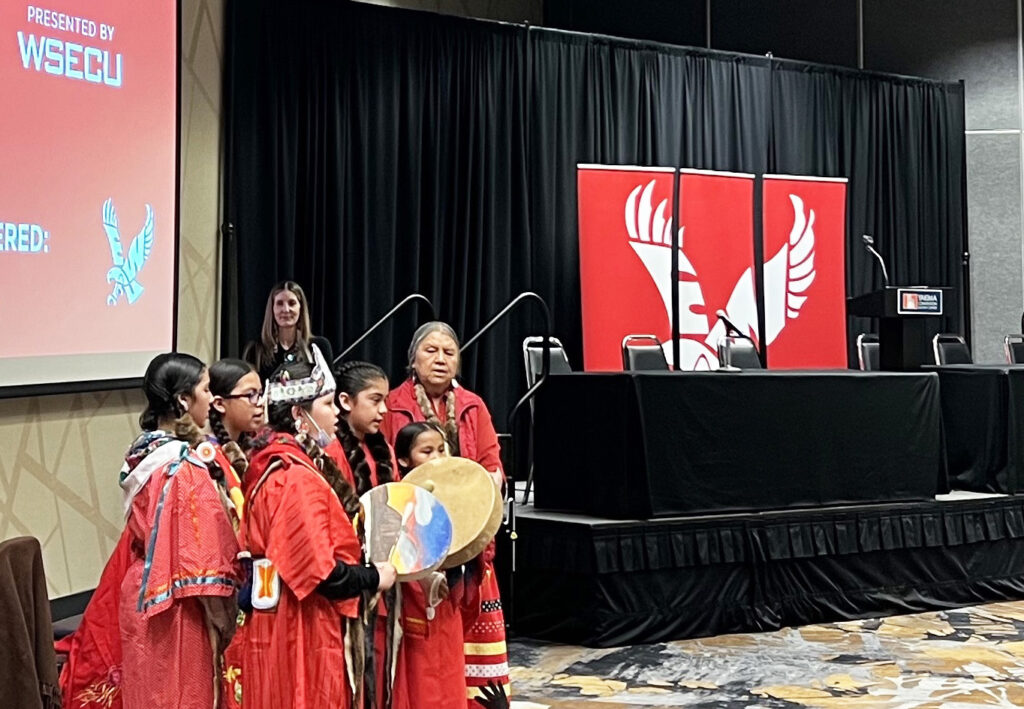Tribal elders, affected family members and community leaders from throughout Washington state gathered in Yakima, Washington, to discuss barriers and troubling statistics surrounding the missing and murdered indigenous women and persons (MMIW/P) crisis, at the latest Eastern Edge event on April 28.
“We want to be able to provide environments where our children are safe,” said Patricia Whitefoot, who is an affected family member of a MMIW/P.

With murder being the third leading cause of death for Native American women, the forum helped shed light on issues surrounding the lack of an effective communication system and how to better educate young indigenous women on one of the most important topics that will affect them for the rest of their lives.
One of the biggest issues contributing to the MMIW/P crisis is poor communication caused by gaps created by a web of tangled jurisdictional systems involving land where the crimes are committed.
“We have tribally-owned land and then non-Indian land,” said EWU Associate Professor Margo Hill, who also serves as the associate director of EWU Small Urban, Rural & Tribal Center on Mobility and was a panelist for the forum. “If it’s a tribal person, tribal laws apply. If there’s a non-Indian – we do not have jurisdiction over those individuals.”
Hill explained that these layers of jurisdiction make it more difficult on investigators, and the additional lack of clarity can result in a lack of communication with family members of the missing persons.
For instance, during the investigation into the murder of Rosenda Strong, who disappeared from the Yakama Reservation in 2018 and was found dead in 2019, her sister, Cissy Strong-Reyes, said she had only been updated twice.
Combine those issues with a severe shortage of high-speed internet in rural areas of Indian Country and you get traffickers who kidnap and murder indigenous people with little to no consequences.
The MMIW/P panel included:
- Emcee: Erin Ross: ’99, ’15, Director of Tribal Relations, EWU
- Moderator: Robyn Pebeahsy, Peacekeeper Society & War Cry Podcast
- Margo Hill ’08, Associate Director of EWU Small Urban, Rural & Tribal Center, EWU
- Dawn Pullin, Washington State Patrol
- Cheri Kilty, YWCA Yakima
- Cissy Strong Reyes, Affected Family Member
- Lila Whitefoot, Affected Family Member
Emotions ran high toward the closing of the event and Kilty took a moment to add a call to action in the form of accountability.
“The thing that I take from everything we’ve heard today is those of us that are not of the Native, Indigenous community, it’s our responsibility to dismantle these barriers. And, every single one of us can play a part in that,” Kilty said.
Those in attendance agreed that education was likely the strongest way to help combat trafficking and that providing this information to young Indigenous women, along with tips and prevention methods, could decrease – and hopefully eliminate MMIW/P cases.
Media Coverage:
Yakima community forum shines a light on barriers to solving MMIWP epidemic, KAPP/KVEW (YakTriNews.com), April 28, 2023
Crisis of missing and murdered Indigenous people has many layers, experts say, Yakima Herald-Republic, April 28, 2023
EWU’s Margo Hill fights for the voices of missing and murdered Indigenous women, the Inlander, May 18, 2023